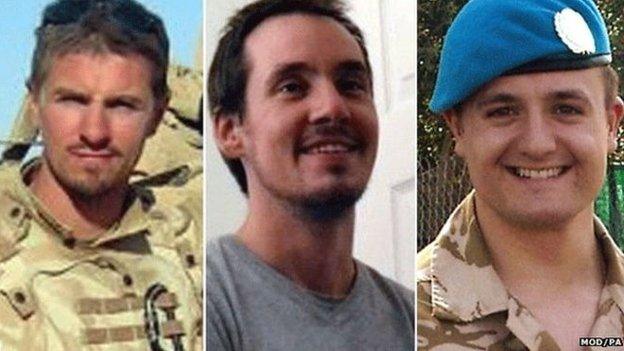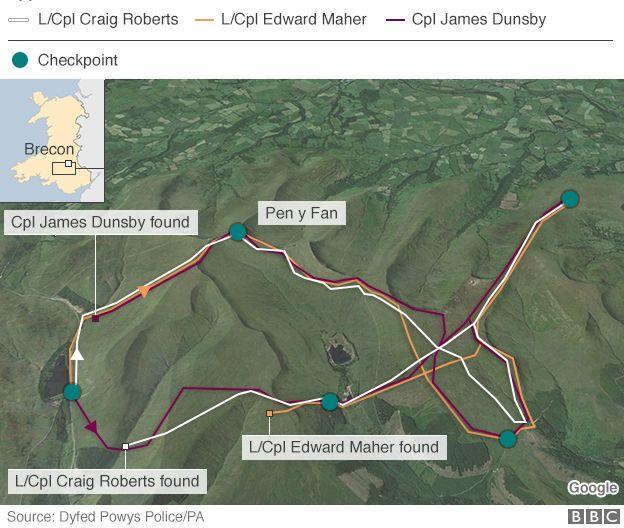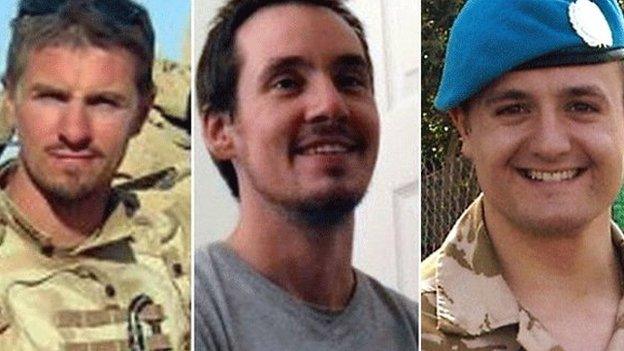SAS selection deaths: Special forces 'cannot stick to safety guidance'
- Published

Cpl James Dunsby, L/Cpl Edward Maher and L/Cpl Craig Roberts died in July 2013
A fatal SAS reservist training exercise would have been "significantly inhibited" if safety guidelines had been followed, an inquest heard.
L/Cpl Craig Roberts died during a Brecon Beacons march in July 2013.
L/Cpl Edward Maher and Cpl James Dunsby also died after collapsing during the same exercise.
On Friday, a serving SAS regular told an inquest stopping the test was "not an option" - even when heat illness guidance might have demanded.
The soldier, known as 9F, was part of the regular unit when the three men collapsed and died trying to become SAS reservists, in a march on one of the hottest days of the year.
'Not an option'
Commanders from the reserve unit previously told the inquest, in Solihull, West Midlands, they took their lead from the regulars.
Soldier 9F was asked about official MoD guidance, which suggests an exercise should stop if soldiers succumb to heat exhaustion.
He said it was written to cover a "very broad demographic", including "young soldiers, women and... those who are not familiar with working in those environments".
"I didn't use [the guidance]," he said, "because it says you must stop training if you get to a certain heat stress, and for the type of training we were conducting, stopping the test was not an option."

The soldiers collapsed during the march while carrying 50lbs (22kg) of equipment
Jonathan Hall QC, for the MoD, asked if the reserve unit - which L/Cpl Roberts, 24, from Penrhyn Bay, Conwy, L/Cpl Maher, 31, and Cpl Dunsby, 31, from Bath, all hoped to join - needed to operate in areas with extreme temperatures.
"We could not do what we need to do if we stuck to this guidance," the soldier replied.
"We're aware of the [guidance] pamphlet, I understand, but it would significantly inhibit the type of training we're trying to achieve."
Soldier 9F said "self-management" was important for those taking part in the training.
'Maturity of judgment'
"It's arduous by its very nature and the individuals have to take responsibility, because we're asking them to do significantly more than basic training," he added.
But he said candidates were expected to exercise "maturity of judgment".
If they did not recognise the symptoms of heat illness in themselves, he added, his instructors would and the candidates would be removed from the march.
Earlier, the coroner, Louise Hunt, heard that an Army medic raised concerns about not having enough medical personnel on hand prior to the march.
The inquest continues.
- Published15 June 2015

- Published17 June 2015

- Published18 June 2015
